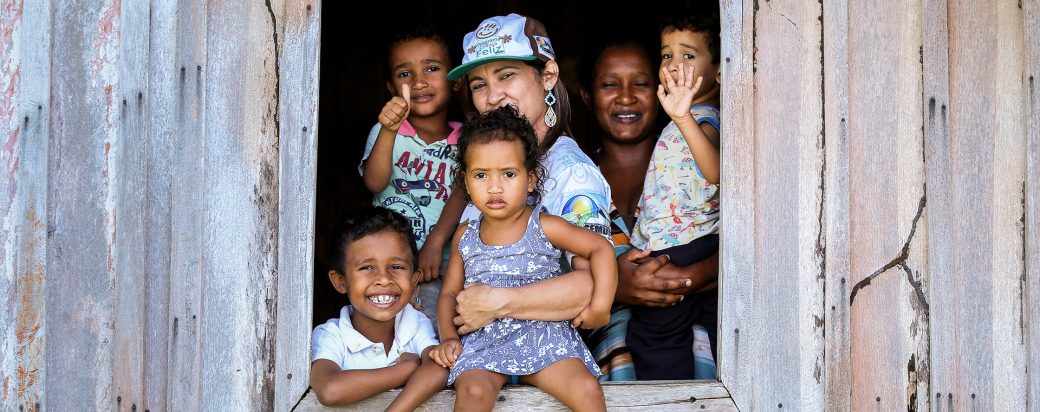Since October 2016, Criança Feliz has expanded at a staggering pace. The home visiting program has trained 20,000 home visitors and 3,000 supervisors, to reach nearly 500,000 children and pregnant women in more than half of Brazil’s municipalities across all 27 states. In 2018, Crianca Feliz served families with children that qualified for basic social protection under Bolsa Familia and planned to expand to populations of special protection, such as those in foster care and juvenile detention centers.

About the Project
This project is one of the 2019 WISE Awards winners.
Brazil launched Criança Feliz (Happy Child) Program (CFP) in October 2016. It is one of the largest ECD home visiting programs in the world. The intent is to reach all of the country’s most vulnerable pregnant women and young children. The Criança Feliz, builds on Brazil’s Primeira Infância Melhor (Better Infancy) Program (PIM); the two pillars are (i) home visits to strengthen families and (ii) intersectoral coordination to strengthen local, state, and national services. The beneficiaries are families with children who participate in Bolsa Familia: families with pregnant women and children under age 3 and children with disabilities under age 6.
Context and Issue
The CFP is an integrative program that offers and optimizes a network of protection and care services for mothers and children in poverty. It adopts a theory of change based on neuroscience research showing that foundations for learning and social and emotional development begin in pregnancy, form in the early years, and can be thwarted by stressors like poverty, abuse and neglect. The challenge is to intervene early, for developmental deficits arise as early as 7 months, widen, and by primary school are large and difficult to close. The CFP takes on this challenge to focus on at-risk pregnant women and young children. It targets BF beneficiaries with an affordable, scalable, do-more-with-less solution. It embraces ongoing skill development to build capacity of home visitors, supervisors, and facilitators and a cadre of managers for public policy planning, implementation, M&E, collaborative governance, and institutional articulation.


